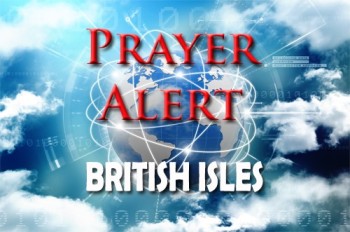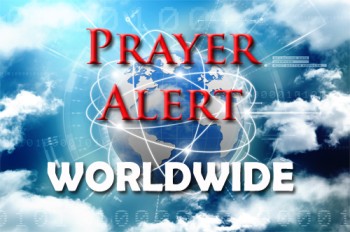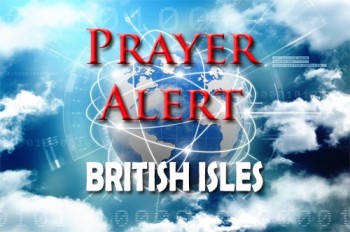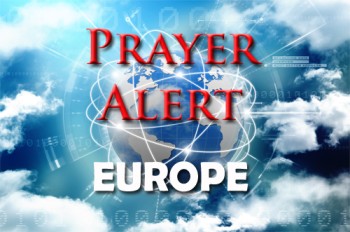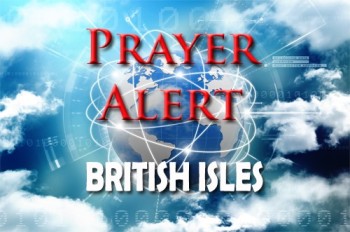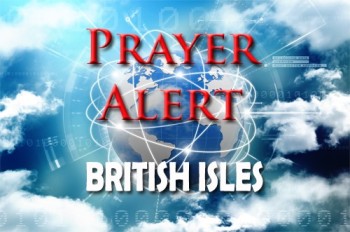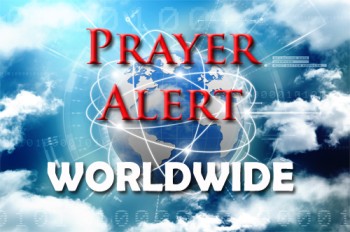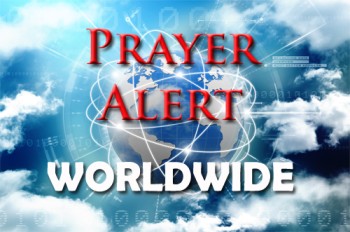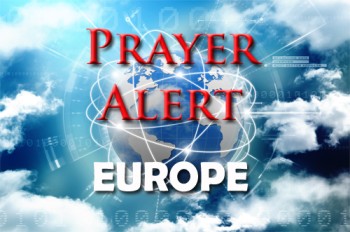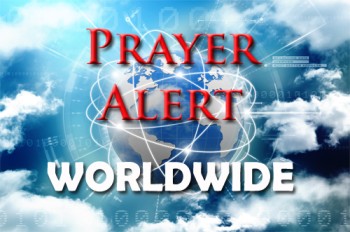Displaying items by tag: criticism
Tommy Robinson announces rally to unite UK 'under God'
Far-right activist Tommy Robinson has announced plans for a new ‘Unite the Kingdom’ rally in central London, promoting the theme 'Four Nations. One Kingdom. Under God.' In a promotional video, Christian language and imagery feature prominently, echoing a previous rally in September which included public prayers, worship songs, wooden crosses, and banners declaring biblical slogans. Some Christian leaders have criticised the movement’s use of Christian symbols. One minister described it as an attempt to 'churchwash racism', arguing that the cross should represent Christ’s inclusive love rather than division. Former archbishop Rowan Williams was also among those condemning the earlier march. While it reportedly drew large crowds, a subsequent carol event saw lower attendance. The rally is scheduled for 16 May, coinciding with the FA Cup Final, raising logistical concerns for policing. The announcement follows Robinson’s claim that he left the UK after being named on an extremist target list.
Libya: UN report shows severe abuse of migrants
A United Nations report reveals severe abuse faced by migrants and refugees in Libya. Many fleeing war or poverty hope to cross the Mediterranean, but instead encounter exploitation. Testimonies describe detention in crowded centres, forced labour, trafficking, and repeated violence. Some are intercepted at sea and returned to conditions where dignity and safety are absent. Investigators say criminal networks often operate alongside officials, creating a system where suffering becomes routine. Thousands remain held without due process, and families are left uncertain about missing relatives. The crisis shows how vulnerable people can be when trapped between conflict, poverty, and political instability.
Latest vetting row raises fresh concerns over Starmer's judgement
A fresh political row has raised new questions about Keir Starmer’s judgment following controversy over the appointment of Lord Matthew Doyle to the House of Lords. Former Downing Street communications director Tim Allan has stated he informed the prime minister about Doyle’s past association with Sean Morton, a convicted sex offender, before Doyle was offered a peerage. Allan said Doyle admitted believing Morton’s claims of innocence prior to conviction but did not disclose campaigning on his behalf. Lord Doyle has apologised for an 'error of judgement' but has declined further comment. There has been considerable unrest within Labour, with MPs voicing concern that repeated vetting controversies are damaging public trust. Comparisons have been drawn with the criticism surrounding Lord Mandelson’s appointment, prompting calls within the party for stronger scrutiny of honours and peerages. With parliament entering recess, pressure remains on the prime minister to reassure colleagues and the public that due diligence and safeguarding standards are being handled responsibly at the highest levels of government. See
Spain / Portugal / Morocco: severe storms contrast with extreme cold in north and east Europe
Severe storms across southern Europe and north-west Africa have forced mass evacuations and widespread emergency responses. Storm Leonardo brought intense flooding to Spain, Portugal and Morocco, with rivers reaching record levels and transport disrupted. In parts of southern Spain thousands fled homes, while northern Morocco evacuated over 140,000 residents as dams filled and rainfall continued. Mountain areas recorded extraordinary totals in little more than a day. A second system, Storm Marta, though less intense, added further rain, strong winds and coastal waves. This contrasts sharply with northern and eastern Europe, where persistent high pressure caused extreme cold and record low temperatures. Meteorologists say the unusual pattern has lasted weeks, steering storms south while trapping cold air elsewhere. Although the rainfall has eased drought conditions in Morocco, communities now face recovery, displacement and rebuilding after damage and loss. Update: Portugal’s interior minister has resigned after criticism of her handling of the storms. See
Union threatens Labour after Andy Burnham blocked from by-election
Fresh divisions have emerged within the Labour party after the decision to block Andy Burnham from standing in a parliamentary by-election in Greater Manchester. The move, approved by Labour’s National Executive Committee, has triggered a strong backlash from MPs, party activists and trade unions. Unison general secretary Andrea Egan warned Keir Starmer that the party risked damaging itself through excessive central control and intolerance of internal dissent. Writing publicly, she accused the leadership of factionalism and called for a radical change in direction to prevent further electoral losses. More than fifty Labour MPs from across the party have expressed concern, with local activists also demanding the decision be reversed. Critics argue the move undermines democratic accountability and weakens Labour’s position in a once-safe seat now vulnerable to Reform UK and the Greens. Breaking news: Andy Burnham has said he will accept the Labour decision even though it was hard to take. See
Chinese mega-embassy approved by Government despite security concerns
The Government has approved plans for a large new Chinese embassy near the Tower of London, ending years of debate over security concerns. The site, purchased by China in 2018 for over £200 million, would become the largest Chinese embassy in Europe. Ministers say national security has been their foremost consideration, stressing that intelligence agencies were involved throughout the process and that extensive mitigation measures are in place. However, critics across the political spectrum have condemned the decision. Conservative, Liberal Democrat, and Reform UK figures argue the embassy’s size and location could increase the risk of espionage and intimidation, particularly toward dissidents living in the UK. MI5 has acknowledged that security risks cannot be entirely eliminated, though it judged the safeguards to be proportionate. Supporters of the decision say approving the embassy reflects pragmatic engagement with a major global power and helps maintain diplomatic dialogue on trade, security, and human rights. Opponents warn it sends the wrong signals about Britain’s willingness to stand firm on national security and democratic values.
India: opposition party lambasts Modi after Trump raises tariffs
India’s opposition Congress party has criticised Narendra Modi after renewed US warnings linking higher tariffs on Indian exports to continued purchases of Russian oil. Jairam Ramesh argued that a personality-driven foreign policy has failed to shield India from economic pressure. He said highly publicised displays of personal rapport with US leadership have not prevented repeated threats over trade and energy. Congress claims years of diplomacy have delivered few tangible benefits, leaving India vulnerable to sudden shifts in US policy. The criticism comes as Washington increases pressure on countries buying Russian energy amid ongoing geopolitical tensions. The government insists that purchasing discounted Russian oil is a sovereign decision needed for energy security and compliant with sanctions. While officials highlight strong defence, technology and trade ties with the US, critics warn that overreliance on personal chemistry weakens institutional diplomacy.
Equatorial Guinea: US payment to accept deportees sharply criticised
The US government has made a $7.5 million payment to the government of Equatorial Guinea as it seeks agreements to deport migrants to third countries, prompting sharp criticism from a top Democratic senator. Jeanne Shaheen said the payment, drawn from a migration and refugee assistance fund, raises serious concerns about transparency and proper use of taxpayer money; it far exceeds all US aid given to the country in the past eight years. She questioned whether funds intended for humanitarian crises should be transferred directly to one of the world’s most corrupt governments. The State Department defended the move as part of implementing the Trump administration’s immigration priorities. The payment raises questions about how the government is enmeshing its deportation agenda with other foreign policy goals, as well as the international leaders it is willing to trust. Immigration advocacy groups have called the policy a reckless tactic which violates due process rights and can strand deportees in countries with long histories of human rights violations and corruption.
Responses to Trump’s criticisms of ‘weak, decaying’ Europe
Donald Trump has intensified his criticism of Europe, portraying the continent as weak’, ‘decaying’, and threatened by immigration. Using inflammatory language, he echoed ‘great replacement’ conspiracy themes, claiming that European countries risk becoming non-viable due to immigration. He insisted European cities such as London and Paris have fundamentally altered, and once again made a personal attack on London’s mayor Sadiq Khan. His remarks followed the recent release of a new US national security strategy warning of Europe’s supposed ‘civilisational erasure’ and signalling support for nationalist parties. European leaders reacted with dismay: Germany’s chancellor Friedrich Merz rejected the idea that Europe needs saving, calling parts of the strategy unacceptable. Pope Leo XIV also cautioned that the shift in US policy risks damaging the long-standing transatlantic alliance, and European Council president António Costa warned Trump not to interfere in Europe’s affairs (see).
‘War against drugs’: USA confirms double strike on a suspect vessel
US military strikes on alleged Venezuelan drug boats are facing intense criticism after reports that a ‘double tap’ attack on 2 September killed survivors clinging to a burning vessel. The White House confirmed a second strike was ordered by Admiral Frank Bradley, saying it was lawful and authorised by defence secretary Pete Hegseth, though officials denied he instructed forces to ‘kill everybody’. More than eighty people have died in similar Caribbean operations since September, yet the USA has provided little hard evidence of drug trafficking. Lawmakers from both parties are demanding investigations, with some Democrats arguing the second strike might constitute a war crime if incapacitated survivors were deliberately targeted. The administration insists it is acting in self-defence against ‘narco-terrorist’ groups, while Venezuela has condemned the strikes as unlawful aggression.
